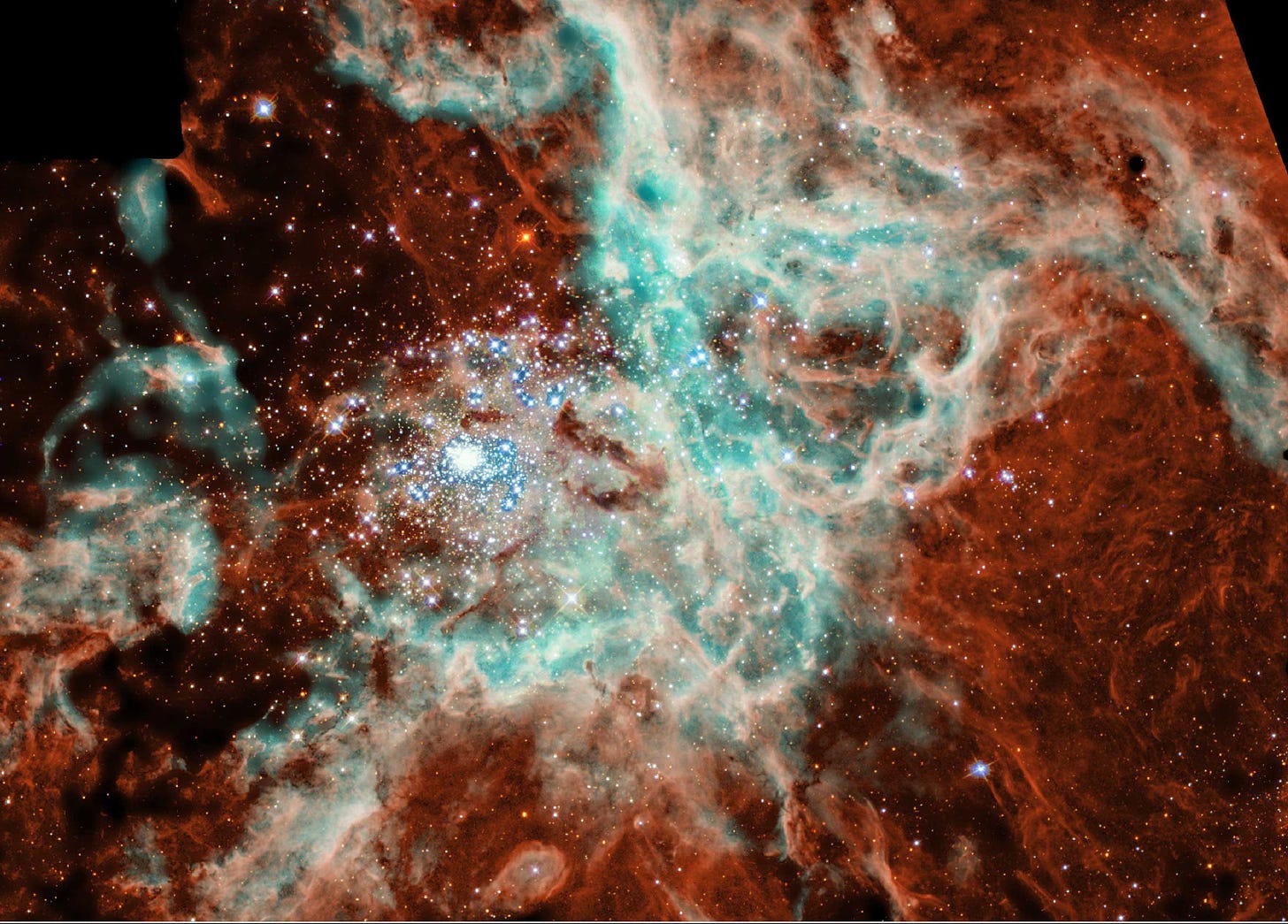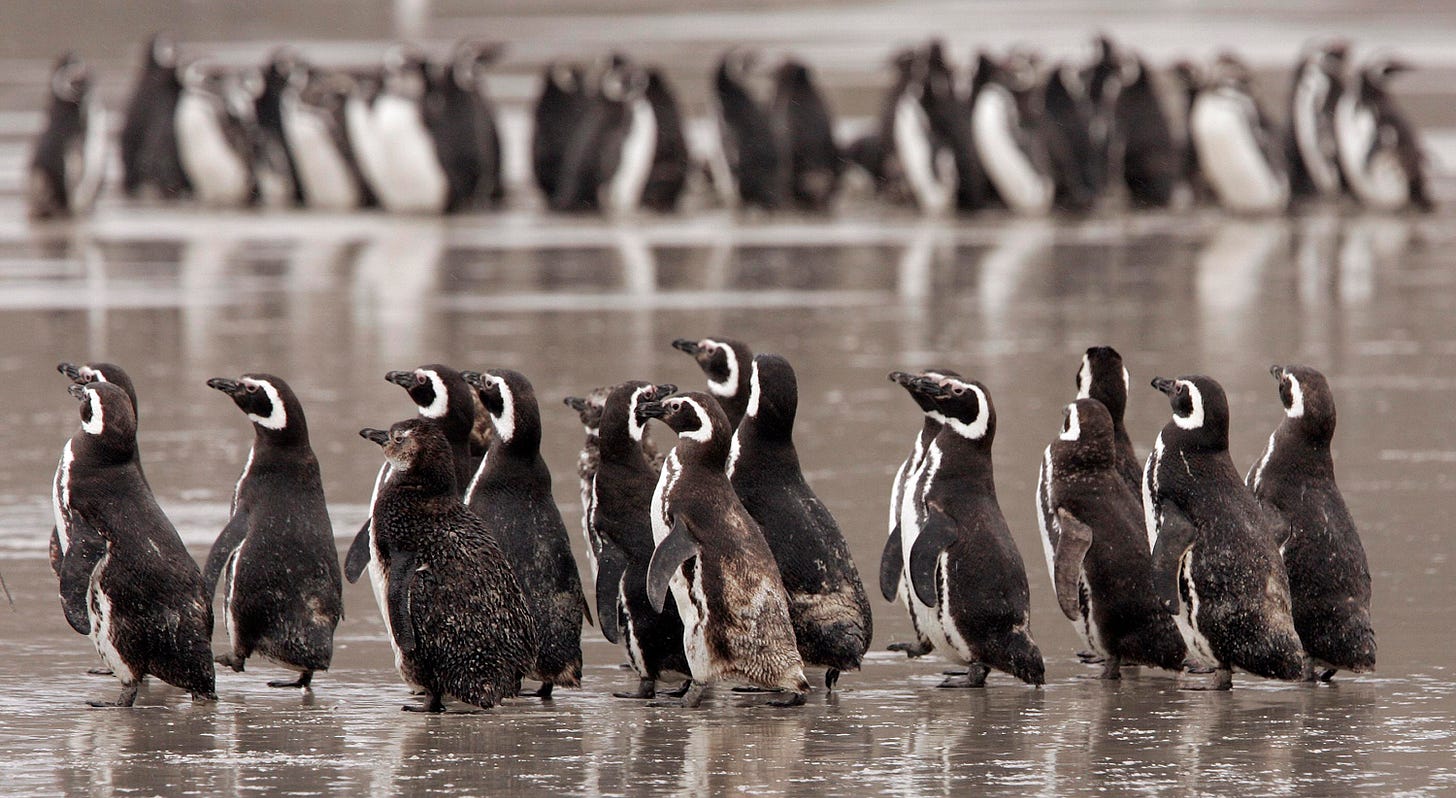Two bright and beautiful galaxies, visible to the naked eye from our southern hemisphere, are named for a man who did some very bad things. They are the Large and Small Magellanic Clouds. Perhaps though, they will not remain so for long.
“Astronomers request retitling of galaxies named after ‘violent colonialist’ explorer Magellan,” reads the Telegraph headline. These are unutterably beautiful astronomical entities, things that give those humans who see them a sense of scale, a sense of both grandeur, and of our own very tiny place in the universe.
“But,” writes Mia de los Reyes, assistant faculty member in physics and astronomy at Amherst, in an opinion piece published in the journal of the American Physical Society earlier this year1, “the beauty of these starry objects is clouded by their names, which honor a man who was a colonizer, a slaver, and a murderer.”

De los Reyes continues: “Magellan was no astronomer, and he was not the first to document these galaxies. Indigenous peoples across the Southern Hemisphere have names and legends for these systems that predate Magellan by thousands of years.”
So is the argument that Magellan wasn’t an astronomer, but the indigenous people who had names for some of the same objects were? Or that the “names and legends” that have reached us from indigenous cultures are better simply because they were first?
Surely we don’t have a stable definition of “astronomer” if people whose names are lost to history are clearly astronomers, and Magellan clearly was not. And those people now lost to history just as surely weren’t the first to notice these beautiful galaxies. The people who lived in the southern hemisphere no doubt already had names for things they saw nearly every night, long before an explorer from the north showed up and saw the same things. That makes them earlier, but it does not make them first.
The “names and legends” that have reached us from indigenous cultures were, also no doubt, those which won out in their own competition for primacy. Those names and legends came to us from indigenous people who were, after all, people, first and foremost. Implicit in de los Reyes’ argument is that, unlike Magellan, those earlier peoples were no colonizers, slavers, or murderers. They didn’t do ugly things like compete.
Presumably de los Reyes doesn’t think that the indigenous peoples across the Southern Hemisphere were placed there, in their current form and with their current beliefs, by a deity who had purified them of all original sin. Is she not aware that murder and slavery have occurred across human cultures, including in the new world, long before any Europeans showed up? Or that, in pre-Colombian South America, the Incas (to name just one culture) colonized myriad smaller cultures before they themselves were colonized?
“Indigenous” is being trotted out as a cure-all, in which anything called indigenous is pure and timeless, without fault, and without history.
The “Appeal to Authority” fallacy holds that experts are infallible: if a credible source believes something, well then, that thing must be true!2 The fallacy is not only that even truly knowledgeable people can be wrong, but also that many so-called authorities are not, in the end, all that knowledgeable.
If that’s the “Appeal to Authority” fallacy, let’s call this new thing the “Appeal to the Noble Savage” fallacy. It holds indigenous people to be the most worthy among all peoples, and incapable of engaging in human acts of cruelty. It holds them on a pedestal. The Appeal to the Noble Savage fallacy imagines indigenous people to be, well, not exactly human.
Beautiful galaxies shouldn’t be named after Magellan because he was a bad man. A flawed man. A man with values that are outdated, a man who did things that are patently not okay.
This at the same moment that people are tearing down posters of innocents kidnapped by Hamas, others are literally advocating for Jewish genocide, and more are seriously considering the philosophy of Osama bin Laden. We can’t even agree on the atrocities that are taking place right now, but our moral clarity becomes 20/20 when we go back a few hundred years, and then becomes ahistorical when we go back in time further yet? How very convenient. And how very facile.
In the not so distant past, junior faculty in math and physical sciences were the ones most likely to shake up fields with their insight. For reasons often described but poorly explained3, innovation in math and the physical sciences has tended to come earlier in a person’s life than does innovation in other fields. Now, though, newly hired junior faculty are shaking up fields not with insight, but with outrage. Outrage, rather than innovation, is how academics are making a name for themselves.
The face of this newest inanity is at Amherst College. But as de los Reyes herself attests, “names reflect community values.” Perhaps Amherst should rebrand.
TikTok College seems a decent choice, given the shared culture of unironic insistence on outrage and self-promotion.
Or perhaps, Delusional U.
Or maybe the school where the chickens come home to roost.
Hire people with an eye towards their immutable characteristics, and don’t be surprised when they use those immutable characteristics to climb to the top of the very hierarchy that you erected, and then burn down everything around them.

de los Reyes 2023. Astronomers Need to Rename the Magellanic Clouds. Physics, 16: 152.
Appealing to authority is the opposite of science, although we saw it being trotted out in the name of science frequently during Covid, including by the authorities themselves. Not only did Fauci effectively declare himself the high pope of science, but many collaborators—in the Third Reich sense of collaborators—did the work of the authorities for them by claiming that questioning authority was itself a dangerous and immoral act.




I've been saying essentially the same thing for decades. This essay zeroes in on the hypocrisy of an ideology that creates its 'science' out of its own imaginings rather from facts and research.
I have a strong physical science background. I made my living from manipulating physical reality. Being a legend in my own mind does not pay well. Getting the job done, right the first time, pays the bills.
In my world, pontificating gets you laughed at. Coming in on budget gets respect and admiration.
When will people realize this "game" of renaming things is un-winnable? There is no person, thing or organization that will ever be moral enough to please the un-pleasable. (Un-pleaseable was just auto-corrected to "unappeasable" which is actually true as well.)